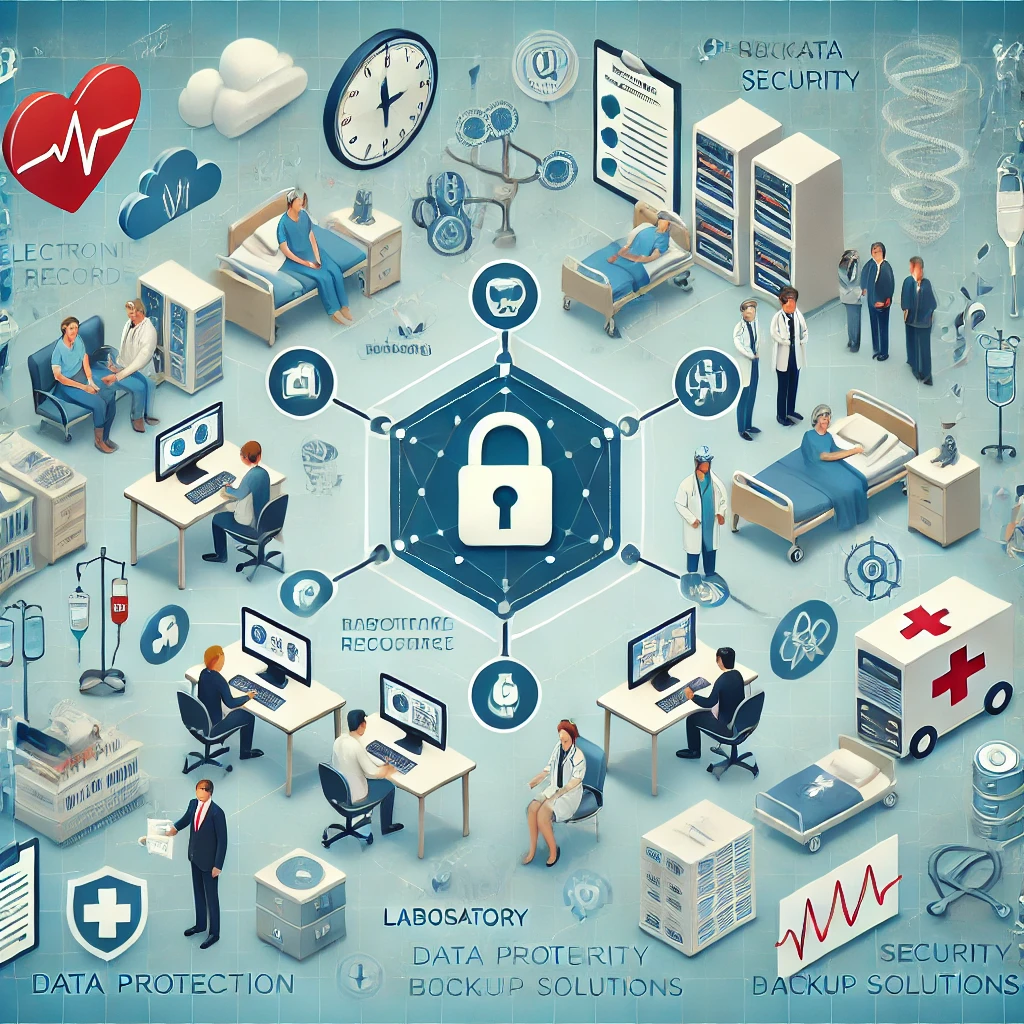
Effective data management, protection, and security are critical in the healthcare industry for delivering high-quality patient care and for improving operational efficiency. The healthcare industry generates a large volume of data. It is highly regulated, frequently targeted by cybercriminals, and faces significant challenges. However, healthcare organizations can significantly enhance patient care and financial results by safeguarding and leveraging data to improve healthcare outcomes, financial stability, and growth.
Addressing Data Management Challenges in Healthcare
Healthcare organizations face some of the following challenges:
- Large volume of data: The healthcare industry generates data from various sources, including medical imaging, laboratory results, doctors’ notes, business operations, and monitoring devices.
- Different data formats
Organizations store medical data in different formats, including structured, unstructured, or semi-structured. These multiple formats and sources create additional data management challenges and burdens on data and systems managers. - Data Security and Privacy: Protecting patient information is critical. Healthcare organizations are required to comply with the Health Insurance Portability and Accountability Act(HIPPA). HIPPA deals with the protection of Private Health Information(PHI). Other regulations mandate data security and privacy as well. Any data breach will lead to severe consequences, including legal penalties and losing patients’ and business partners’ trust. In addition to PHI data, other operational aspects of the business are at risk. The technology team must use a combination of backups, archives, and data replication to protect data from loss.
- Data Integration and Interoperability:Healthcare providers and payers use different systems and applications, some of which may not communicate seamlessly. Integrating data across various platforms and ensuring interoperability is crucial for efficient operations and effective patient care.
- Data Quality and Accuracy: Inaccurate or incomplete data may lead to misdiagnoses, improper treatment, billing issues, and inefficient operations. Quality control is an integral part of data management and directly affects patient health and the financials of both healthcare providers and payers.
If healthcare is to focus on patient care, it must address some of the challenges described above.
Overcoming Data Management Challenges
The following are some strategies to address the challenges we described:
- Implement Robust Data Governance: Strong data governance is critical. For example, the business must define data ownership, set data standards, and implement policies and procedures for data management and protection. A dedicated data governance team must oversee data quality, security, and compliance.
- Leverage Advanced Data Analytics: Advanced analytics tools will help healthcare organizations extract decision-making knowledge from their data. Predictive analytics, machine learning, and artificial intelligence will provide valuable insights for improving patient outcomes, optimizing operations, and reducing costs.
- Invest in Interoperable Systems: Adopting interoperable systems and standards can facilitate seamless data exchange between healthcare systems. This practice ensures that patient information is accessible and accurate across all points of care.
- Prioritize Data Security: Implement robust security measures, including encryption, access controls, and regular security audits. Educate all team members about data security and protection best practices and ensure compliance with regulatory requirements to protect all data.
- Utilize Cloud-Based Solutions: Cloud-based data management solutions offer scalability, flexibility, and cost-effectiveness. They can handle large volumes of data, provide real-time access, and ensure data redundancy and disaster recovery. However, this strategy is not immune to drawbacks. The crowdstrike flaw and the loss of data or access to it all serve as great reminders that even the cloud is not a panacea. Therefore, a hybrid cloud and on-premise solution is more effective.
- Foster a Data-Driven Culture: Encourage a culture of data-driven decision-making within the organization. Provide training and resources to staff to help them understand the importance of data and how to use it effectively in their roles.
- Rigorous quality control: Testing of applications before deployment are essential to eliminate downtime risks and wrong data processing.
- Ensure continuous data protection and availability: Healthcare organizations should have well-designed and multi-data protection plans to recover quickly.
Conclusion
Data management, protection, and security are crucial to effective healthcare operations. The rise in ransomware attacks underscores the need for healthcare organizations to prioritize cybersecurity. Implementing robust security measures and educating team members about security will help to protect data, ensure operational continuity, and maintain trust in their services.
References
https://ieeeaccess.ieee.org/featured-articles/industry4-0/
https://ieeexplore.ieee.org/document/9740286
Read also:
Share this Post